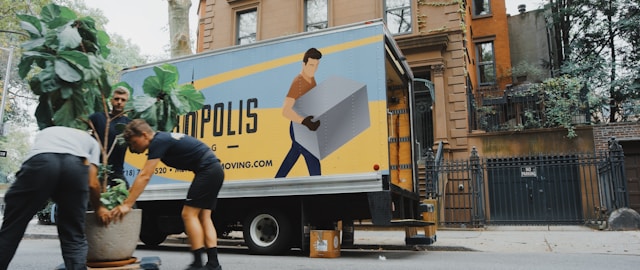Navigating City Moves: Strategies for Urban Relocations

Relocating within the bustling cityscape of Chicago poses unique challenges and opportunities for urban dwellers. From navigating the dense traffic to adjusting to high-rise living, moving in the Windy City requires a strategic approach to tackle its distinctive urban hurdles. This guide is tailored specifically for Chicagoans, providing you with expert tips and local insights to streamline your move across town or into the heart of the city. Whether you’re moving to a lakeside condo or a brownstone in one of the historic neighborhoods, understanding how to effectively manage your relocation can make the process smoother and more efficient. Given Chicago’s variable weather, from icy winters to humid summers, timing and preparation are key to a successful city move.
1. Understand Parking Regulations for Moving Trucks
One of the first hurdles you’ll encounter during an urban move is finding parking for the moving truck. City streets are often narrow and heavily regulated. Prior to your move, research local parking regulations. In some cities, you may need to obtain a permit to reserve street space in front of your new residence. Make sure to handle this well in advance to avoid delays on moving day. Notifying your new neighbors about your move can also prevent parking issues and make the logistical challenge a bit easier to navigate.

2. Choose the Right Time to Move
Timing your move can be crucial in a city. Traffic congestion and street accessibility can vary dramatically depending on the time of day and week. Planning your move during off-peak hours can save you a lot of time and hassle. Early morning hours during the weekday or later in the evening can be ideal as they typically avoid rush hours. Consulting with a seasoned Chicago IL moving company could provide insights into the best times for urban relocations, helping you plan a move that avoids unnecessary complications.
3. Elevator Access and Restrictions
High-rise buildings often have specific guidelines about using elevators for moving. Check with your building management about booking a service elevator and any potential restrictions or fees associated with its use. Scheduling exclusive access to a freight elevator can prevent interference from other residents and speed up the moving process. It’s crucial to adhere to these rules to ensure a smooth move and maintain a good relationship with your new neighbors and building staff.
4. Packing for a Compact Space
When moving to a city, especially into apartments or condos, space can be at a premium. It’s important to pack with a plan to maximize your new, likely smaller, living space. Decluttering before you pack is essential; donate or sell items you no longer need. Use space-saving packing techniques such as vacuum-sealing bags for clothes and linens. Labeling each box with its contents and intended room will streamline the unpacking process and help keep your new urban home organized from the start.
5. Handling Utilities and Services Setup
Coordinate the setup of utilities and services like internet and cable in your new home ahead of your move. Urban areas often have multiple service providers, and scheduling installations can involve long wait times. Contact providers at least two weeks before your move to arrange necessary appointments. This ensures that your essential services are up and running soon after you arrive, allowing you to settle in quickly and start enjoying your new city life without major disruptions.
6. Secure a Reliable Moving Company
Choosing a reliable moving company is critical for a successful urban move. Look for movers with experience in city relocations, as they’ll be adept at handling the logistical challenges specific to urban environments, such as small elevators, narrow streets, and strict parking regulations. Read reviews, ask for recommendations, and ensure the movers are licensed and insured. A dependable team will not only protect your belongings but also relieve a great deal of stress on moving day.
7. Prepare for Moving Day
The actual day of the move can be hectic, especially in a city. Prepare an essentials kit that includes items you’ll need immediate access to, like toiletries, a change of clothes, snacks, water, and basic tools. Ensure all your belongings are packed and labeled a day before the move. Also, keep important documents, such as your lease agreement, identification, and valuable items, with you at all times. Being organized can significantly streamline the moving process.
8. Notify Important Parties
When relocating, it’s essential to update your address with various institutions. Notify banks, credit card companies, utility providers, and government bodies about your move. Don’t forget to forward your mail through the postal service to avoid missing important correspondence. This step is often overlooked but is crucial for maintaining continuous service and records.
9. Explore Transportation Options
Once you’ve moved, take some time to understand the transportation options available in your new area. Many cities offer robust public transit systems, and becoming acquainted with them can make living in the city much easier. Consider if you still need a car, as parking can be expensive and scarce. Alternatively, look into car-sharing services, biking, or walking as viable daily transportation options to fully embrace city life.
10. Connect with Your New Community
Moving to a new city is not just about physical relocation but also about integrating into a new community. Explore your neighborhood, join local groups, and participate in events to meet people and make connections. Understanding the local culture and community can make your transition smoother and enrich your urban living experience.
Conclusion
Relocating to an urban environment requires meticulous planning and adaptation to the unique challenges of city living. From securing parking and elevator access to choosing the right time to move, each step needs careful consideration to ensure a smooth transition. Employing experienced movers, particularly those familiar with city logistics, can provide invaluable support. By following these strategies, you can navigate your city move with confidence, ensuring not just a stress-free relocation but also a fantastic start to your new life in the urban landscape. Embrace the change, and enjoy the dynamic and exciting opportunities that city living has to offer.


